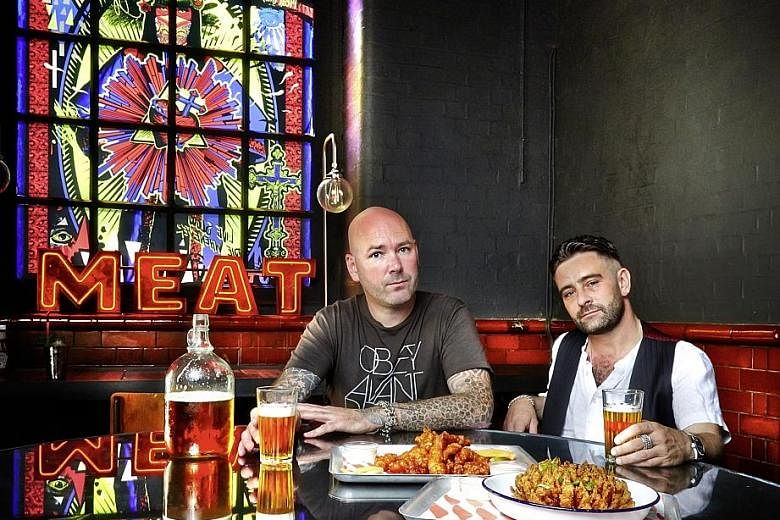LONDON • It was while he was reading classics at Brown University in Providence, Rhode Island, that Tom Byng first began a serious study of the American hamburger.
After a long night of college carousing, the Old Etonian would often end up at the Silver Top, an elderly diner that had been serving the same greasy, roadside staples since the 1930s.
In December 2007, a decade and a half after his American sojourn, he took everything he had learnt about beef patties, buns and the restaurant business and opened the first branch of his burger empire, Byron, in west London. The British hamburger has never been quite the same.
To date, Byron has served more than 24 million burgers at 70 locations across Britain. Originally backed by Gondola Group, in 2013, the business was acquired by Hutton Collins Partners for £100 million.
Byng stood down as chief executive earlier this year, but he left the meat sandwich market transformed. The British burger business is now worth a super-sized £3.3 billion (S$5.9 billion), according to market research firm Mintel.
Before Byron, Britain's leading purveyor of premium burgers was Gourmet Burger Kitchen, launched in London in 2001 by a trio of New Zealanders. But while Gourmet Burger Kitchen's menu was replete with bastardised recipes (among the ingredients of its signature "Kiwiburger" are beetroot and pineapple), Byron went back to basics.
Food writer and burger connoisseur Helen Graves says: "Byron was groundbreaking because it made a fresh-tasting burger and didn't mess about with it. It's just a standard patty, lettuce, pickles and sauce, American-style."
Ten years ago, the hamburger was an object of suspicion, thanks to Eric Schlosser's 2001 book Fast Food Nation and the 2004 documentary Super Size Me, which portrayed the health and environmental damage wreaked by the fast-food industry.
Byron sidestepped that controversy by focusing on quality ingredients, offering healthier-sounding sides such as courgette fries and serving its burgers alone on a white plate, thus elevating the burger's status from junk food to restaurant dish.
Yianni Papoutsis was another person to popularise the American burger in Britain. He was a technician for the English National Ballet, who flipped burgers at the Burning Man festival in Nevada.
In summer 2009, he bought a burger van, opened a Twitter account and started cooking on an industrial estate in south London.
Ms Graves was the first to review the Meat Wagon. "I went down there, ate one of Yianni's big, juicy, filthy, drippy burgers, wrote about it on my blog and it blew up from there. It couldn't have happened without Twitter."
When the meat wagon was stolen in 2010, Papoutsis and pub owner Scott Collins teamed up to open a punky, pop-up diner, Meateasy, in New Cross.
Londoners dutifully made the journey to the then-barely-fashionable corner of the city to sample Papoutsis' signature Dead Hippie burger, made with a special sauce, whose recipe remains a closely guarded secret.
Meateasy's first permanent venue, the cavernous Meatliquor, opened less than a year later beneath a multi-storey carpark near Oxford Street.
Six years on, Collins and Papoutsis have 13 London sites and expect to hit £17 million in sales this year.
"Yianni's success was to do with several factors coming together," says writer Gavin Lucas, whose website Burgerac is devoted to London's burger scene.
"People lost their jobs in the recession and started to wonder if they could make a living without working for the man.
"Meanwhile, social media took hold - suddenly, you could turn your passion into a stall without having a bricks-and-mortar premises, without hiring a brand agency to get the word out."
GUARDIAN

